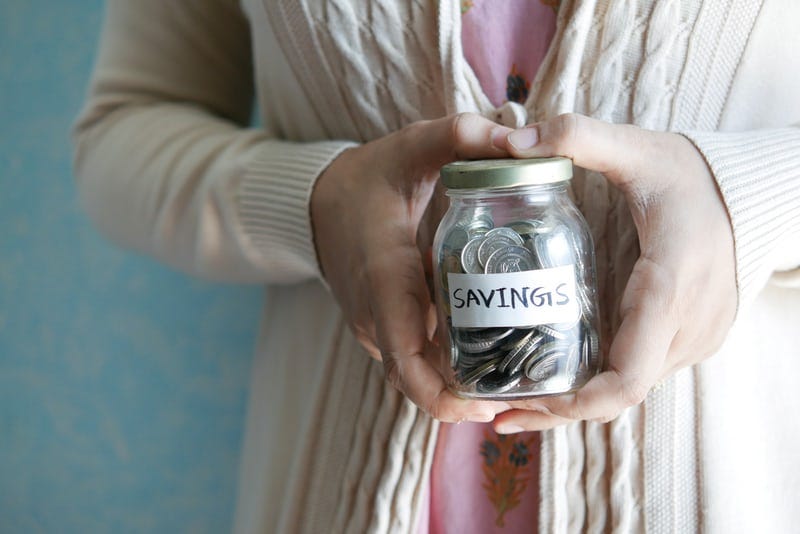I hope most would agree that the most logical time to flee to the Bahamas is during post-peak times when school is in session, rates are low, airports are empty, no holidays around the corner, and when a Nor’easter is brewing up north.
Same goes for retirees. When the market is at its peak, the economy is booming, inflation is steady, consumers are flushed with cash, retail spending is surging, unemployment is at its low, and portfolios are booming, it would seem most logical to say sayonara to work and bon voyage to relaxation.
Unfortunately all good things must come to an end and cannot last forever. Everyone gets tired after an extended vacation right? I must not be the only one.
Too much of a good thing is bad and past the peak, comes a pit more formally known as some sort of correction, pullback, bear market, recession or worst of all, depression lasting for years.

No Time Off
Of course the best time to retire would be up to you. Unfortunately most don’t have that luxury and instead must retire a couple times in their lifetime in order for it to feel as if they’ve properly retired. Majority of Americans usually retire when they can no longer work due to physical or mental constraints or get laid off, not when their portfolio tells them they can. Or if they are a part of the top 1%, they have all the freedom and time in the world to choose when retirement suits them best.
Funny enough those who are in that cohort tend to refuse the concept of retirement in its entirety since they are so obsessed with their craft and the money just follows them anyway. The faster you can get money attracted to you, the more freedom you’ll feel. Though that can only be possible if, and only if you watch your expenses like a hawk. It’s not how much you earn, it’s how much you keep. After all, it’s easier to spend more with more.
With only 1% of Americans with more than $1m in their retirement savings, the bulk of one’s life savings, this is a serious problem. People seem to be really stubborn, not vigilant, and in fact reluctant to focus on retirement.
I don’t have a 401(K) yet since I’m a junior in college but whenever I talk to my buddies about contributing the max ($6k) to my Roth IRA each year, they laugh at me and say,
“Mia, live in the present! Retirement will come when you are older and wrinkly!”
This makes me cringeee. You know how we are the average of the people we are with? This is our greatest disagreement. Obviously you don’t start planning for something when you are in it!
At least I’ve encouraged my pals to start investing but when it comes to thinking beyond tomorrow, they snap out. Never be afraid or embarrassed to contribute to your retirement fund.
It’s the scariest and most expensive period of one’s lifetime. Medical costs are the number one reason Americans go into debt and health risks only multiply with age. Plus, don’t tell anyone you’ve been working hard and contributing all your earnings as I shouldn’t have done! No one needs to know you will be better off than them as a grandparent following your own plan in secrecy living the life one could only dream of.
The point of retirement is to take a break and enjoy living off of your lifetime savings and investments. It will come whether you want it or not. Instead of splurging hundreds of dollars on Botox and cosmetics for 40 years, succumb to the fact you will get older, tired, more wrinkly, sluggish, smelly, and need to prepare for it! Eating Ramen and sharing a studio with 4 strangers won’t work in your ‘80s.
Retirement is not to chill for a hot sec then flee on the FIRE movement for a good few months, get bored sipping margaritas, then franticly come back with no money to spare. You will not only will be disappointed in yourself and ashamed for your poor illogical decision, but will have a hard time going back into the real world if you treat retirement as a fast gig that can happen anytime. If you need a break, take one. Shorter consistent once in a while vacations are better than a mini-retirement. Use up as much energy as you can while it lasts.
I’m shocked whenever I see the elderly, 75+ working blue-collar jobs! The other day at Trader Joes majority of the staff was considerably older than the median aged workforce! Their financial illiteracy and diligence got the best of them when they were younger. They focused too heavily on the present and were overly hopeful. At least they can stay occupied with a job as they get older but of course, that comes with major downsides, most evidently in terms of their finances.
Being too joyous and not realistic can be most damaging for your health and finances. Take a pragmatic view or in my case, a catastrophic one to plan for the worst hope for the best! Enjoy the small things in life and the present moment but make sure to plan to enjoy later on by planning for it today.

Ready or Not
Sadly most people retire when they aren’t ready to but all the retirees I meet seem to live their best lives, happily ever after living with their son or daughter’s family and get by just fine.
How is that so when we know majority of retirees shouldn’t be retired?
Well, since most people don’t change until they need to, when you are forced to lower your living expenses and take a more conservative outlook in your portfolio, there’s no other choice than to do so. It’s a life or death situation since our finances control our lives after all.
Whatever your goals may entail, remember that everything is more expensive and takes longer than it seems. With inflation bitting us all, we seem to be ignorant to it, and consumers continue to spend like there’s no tomorrow even as CPI (price index) rose by 6.2% in the last year alone! Eventually we will have to substitute the steak for chicken and vacations for education to not get beaten down by hyped prices even more.
Cut down on those subscriptions, live frugally, and the stealth wealth lifestyle now to live better tomorrow. Today’s sacrifices pay off big time, especially in the market. Appreciate what you have not what Facebook forces you to purchase. Most of the influencers you follow have probably never tried out the products they sell themselves. Treat your brain and wallet right by prioritizing your future self. The only way to close the gap between your present and future self is through action. Thinking is only 20% of the equation, 80% of it is action. 80% of the results is done through 20% of the action. Drill down into that 20% to save your sanity, time and actually enjoy life when you are older.
You shouldn’t be expected to work during retirement. There’s no going back. You should put in the work now to let the work work for you later. Having a less aggressive withdrawal rate at roughly 4% or lower is ideal.
No matter if you retire during a bull or bear market, keeping your expenses low is key to make sure you don’t run out or have to deal with longevity risk, living past the allocated retirement fund amount you hoped would be enough to sustain your lifestyle!

Bull Market Retirement Scenario
Let’s say you decided to retire at the peak of the market this past summer.
Broader U.S. indexes were flourishing, meme stocks were flying, SPACs and IPOs were hot, too hot in fact, vaccinations were in full-effect, businesses and travel was opening up, and you built a stable cushion beneath you and decided it was time to enjoy life again, retirement style.
I would say the worst possible time to retire was during the pandemic because we were all stuck at home anyways and that would’ve probably caused massive regret. Fast forward to today which none of us expected would be this tight and high, retiring during this current environment is tough enough since valuations are too frothy and prices are high enough that nothing makes sense. No one knows when the fun will end but it will eventually. Just ask economists and they will elaborate on their grim outlooks for next year. Some estimates only propose a 3% return for equities and 3% GDP growth! Since stocks are seeing significant price moves based on relatively seemingly small events it’s hard to pinpoint anything.
Most retirees have 4–5 source of income:
-Brokerage, investment account, Roth IRA, 529 college savings
-Social Security
-Employer or non-employer sponsored account such as Pension, IRA, 401(K), 403(b), SEP IRA
-Properties or Businesses
This can be a lot to manage and handle but the best piece of advice when it comes to handling accounts is to open them earlier than later. Time in the markets > timing the market and contributing the max to your employer sponsored accounts and Roth IRA are ideal to make the most out of compounding.
Never stick with the excuse, ‘there’s not enough money’. There’s always money you could’ve come up with earlier instead of having too much fun. Just saying.
Ultimate Indicator
If you retired in the heat of the market, let’s say around June 2021, your withdraw rate, the amount of money you withdraw from your savings to fund your lifestyle in retirement, could’ve been a bit higher than during a recession when you needed to conserve your savings and spend less. But don’t get sidetracked or distracted by your spending. Your withdrawal rate should be in line with how much you expect to return that year, the key indicator on when to retire.
The withdrawal recommendation is around 4% for most in order to stay in line with spending and not go overboard. The worst thing that could happen is you live longer than what you’ve allocated for.
The ultimate time to retire is when you believe what you withdraw you can earn back. Since you want to take a more conservative approach in retirement for obvious reasons such as your age and time horizon, investing in cash and cash alternatives, money market funds during this time are prudent choices.
Money-market funds such as CDs to commercial paper, short-term debt and cash are ideal for retirees so they can access this liquid money as soon as they may need it during prosperous economic times when interest and savings rates are higher.
Now let’s look at a bear market’s case to weigh the drawbacks and benefits.

Bear Market Scenario
Whenever the economy is doing poorly, few key things take place.
-Interest-rates are lowered to encourage spending and borrowing
-Fiscal and monetary stimulus is pumped into the economy through stimulus measures and into consumers pockets and investors through their bond buying program which makes equities and more volatile stocks more attractive as they have less cash on hand.
-Savings rates relative to income go up ~20%+
For retirees, this time isn’t ideal despite cheap money. Not only is the economy and market more in limbo, although goods may be cheaper, it’s harder to earn back what you spend in a conservative portfolio.
Retirement isn’t just running out of money until you hit zero. It’s advised to have a little more than a little less before you are gone. You constantly want to be re-investing as much as you can and whatever you withdraw, strive to return as much back.
Since fixed-income securities historically have lower yields than equities and U.S. government backed securities offer the best protection against default as safe haven steady assets, it may be suggested to retire when the economy is prospering as these conservative investments are guaranteed to return something.
Yes equities can skyrocket but aren’t steady and don’t do as well as when interest rates are at zero. When higher interest-rates are in affect, inflation has cooled, attempting to be controlled and or in transitory mode, and the stock market is consistently rising not going bonkers post-pandemic, you are then more likely to get the best return on your savings, cash conservative rich portfolio.
Whether it’s in retirement or in your twenties, your goal should never to be to beat the market or the Fed. Don’t conflate brains with a bull market. Your life savings shouldn’t be touched unless it’s an emergency and instead your portfolios and income sources should keep you afloat. That doesn’t change in retirement. You’re still earning and living off of your investments but not as aggressively as a teen.
In retirement, evaluate how you can get the most bang for your buck from your portfolio and tailor it to the market. This tends to work well when the economy is stable and or recovering, stocks aren’t trading at unbearable premiums, and interest rates are at a decent rate growing your savings not deflating them.
If you put in the work, the work will work for you.
Retire when you need to to feel the most secure, not when you feel like it. The journey starts now.

